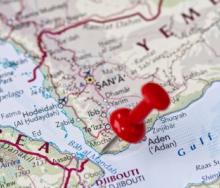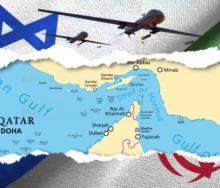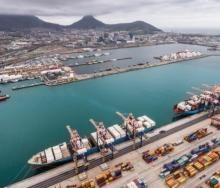A tense tit-for-tat involving Greece and Iran over confiscated oil, which also involves Russia and the United States through a sanctions twist related to the war in Ukraine, is currently playing out in the Persian Gulf.
This has come to light after Iran’s Islamic Revolutionary Guards (IRGC) ordered two Greek tankers, the Delta Poseidon and Prudent Warrior, to berth at the Port of Bandar Abbas as the vessels sailed through the Strait of Hormuz.
Since Friday’s seizure of the vessels, Iran has warned that 17 other Greek tankers in the Persian Gulf and Gulf of Oman will be targeted unless Greece immediately releases a tanker confiscated in the Aegean Sea.
When the Lana was temporarily sequestered by Greek authorities near the Port of Karystos, it was still named Pegas and was sailing under a Russian flag.
However, the Pegas underwent a name change, and as of May 1, has been sailing under Iran’s flag in a patently obvious bid to assail sanctions imposed on Russian cargo, especially oil-carrying tankers.
Commenting on the saga that started through US pressure on Greek authorities to abide by anti-Russian sentiment, Dryad Global said: This incident is assessed to be a retaliatory action in line with a history of Iranian forces detaining vessels in a tit-for-tat manner.”
In 2019 a similar standoff with Tehran ensued after the US pressured the UK into detaining an Iranian supertanker, the Grace 1, at the Port of Gibraltar, a matter that resulted in another tanker, the Stena Impero, being seized in Iranian water.
More recently, Iran seized another tanker, the Hankuk Chemi, in response to South Korea’s central bank seizing Iranian funds.
Iran has countered saying that the Delta Tankers and Polembros Shipping vessels, forced into port on Friday, contravened maritime law.
It is not clear whether any charges have been laid, or what charges Iran intends to lay against the 17 other Greek-run vessels it has also threatened to seize.
The IRGC has since said the seafarers on board the two tankers are safe and cared for.
Dryad warned that “Greek-flagged and Greek-owned vessels, as well as vessels carrying Greek cargo that are operating within the vicinity of Iran in the Persian Gulf and Gulf of Oman, are currently assessed to be at a heightened risk of interception”.













